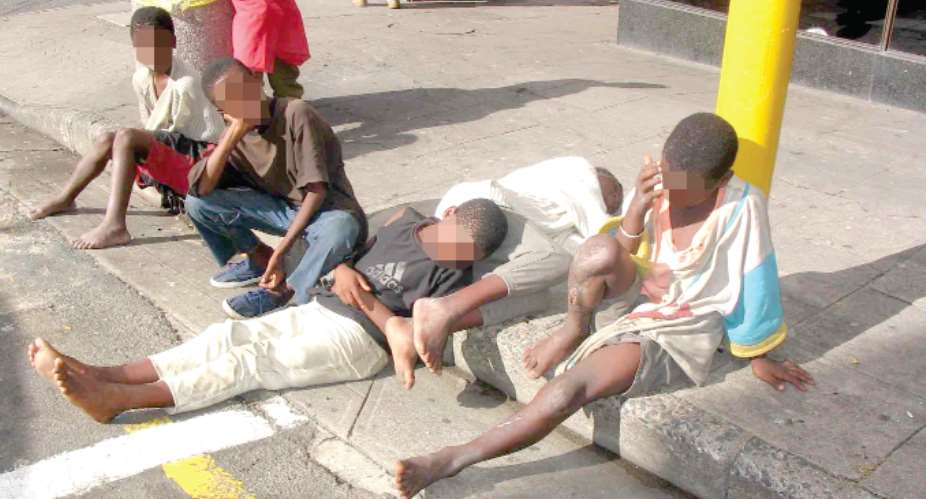The character trait that was never alien to an African was hospitality. A true African loved and cherished people without cognizance to their differences in ethnicity, tribe or language. This trait was more unimaginably excessive in the family system where everyone in a family treated one another like seeds of the same womb. One never bothered about the fate of his children should a sudden death visit. This was not because the parents of the primordial Africa were indifferent, but the family was not just by name; but a group that will cater for each relative irrespective of the womb he or she developed. The extended family system was full of strong cohesion of love and care for each other and each other’s children. Could this trait of hospitality be so important to be discarded? This article seeks to enlighten readers on how the Africa- man lessened being hospital without knowledge and how this reflects in the increase of streetism within the society.
Streetism is a term used to describe the situation where people, mostly children who live and struggle on the streets. These people, most often than not, have inadequate or no family ties. Eating once or twice and finding shelter becomes the prayers of these mercy seeking youth and children.
Many factors contribute to the increase in streetism in Africa. Common among them include rural-urban migration, truancy, parental neglect and second generational street children (children “of the street”) and poverty.
The ethical questions that ought to arise in our minds are whether these victims are without families and if the inhabitants of Africa are still hospital? Of course, they do have families, evidentially; victims of streetism do bare surnames. In other words, they have families. The only question that seeks contemplation is whether families in our countries have maintained the hospitality we inherited as a basic trait of an African. Analytically, rural-urban migration, truancy, parental neglect and second generational street children (children “of the street”) and poverty which are most common causes of streetism primarily resulted from the failure of the family.
In the Ancient African society, if the parents of a child were irresponsible or impoverished, members of the extended family took good care of such children; they gave them the necessary care and socialization that would prevent such children from becoming truant, impoverished and finally ending up on the streets and as well birthing second generational street children.
Streetism is an obvious indication that Africa has lost the value of hospitality in our family systems and lives. Ancient African families accommodated relatives that lost their parents but the contemporary African families have lost this act of hospitality and children of deceased parents are out on the streets wallowing in hunger. It was a pain of the extended family to see relatives drop out of school, to avoid such pains, they contributed and sold properties to send children to school.
It is obvious how our own ‘’sins’’ have come back to haunt us. Crime wave in the society is uncontrollably increasing. The vulnerable we neglected from the family have found a bad alternative of surviving in the tough world. If Africa continues to desert vulnerable family members and allow them to become “citizens” of the street, they will pick up truant behaviors and definitely harm us in our homes and on our roads. Let us bring back children of deceased parents to the family to avoid continual increase of crime wave.
The happiness of sleeping in luxury and eating delicacies cannot be ideal if we neglect the needs of children who can barely afford food. It is therefore a call for the awakening of hospitality in the African society. Few people and organizations among the populace have established orphanages, foundations, and scholarship schemes; this is a laudable legacy every person should yearn for.
Create a smile on the face of a person who cannot pay you back, let your influence in the lives of those who can barely become as rich as your poorest moment stand loud. Change the dwelling place of a street child and another of his ambitions.





 Meta releases new version of conversational AI across its platforms
Meta releases new version of conversational AI across its platforms
 Cape Town named Africa’s Best Airport 2024 by Skytrax
Cape Town named Africa’s Best Airport 2024 by Skytrax
 Bono East: Four injured after hearse transporting corpse crashes into a truck
Bono East: Four injured after hearse transporting corpse crashes into a truck
 ‘Be courageous, find your voice to defend our democracy’ — Sam Jonah urges journ...
‘Be courageous, find your voice to defend our democracy’ — Sam Jonah urges journ...
 Exodus of doctors, nurses and teachers have worsened because of unserious Akufo-...
Exodus of doctors, nurses and teachers have worsened because of unserious Akufo-...
 2024 election: Avoid insults, cutting down people in search of power – National ...
2024 election: Avoid insults, cutting down people in search of power – National ...
 ‘You passed through the back door but congratulations’ — Atubiga on Prof Jane Na...
‘You passed through the back door but congratulations’ — Atubiga on Prof Jane Na...
 Government’s $21.1 billion added to the stock of public debt has been spent judi...
Government’s $21.1 billion added to the stock of public debt has been spent judi...
 Akufo-Addo will soon relocate Mahama’s Ridge Hospital to Kumasi for recommission...
Akufo-Addo will soon relocate Mahama’s Ridge Hospital to Kumasi for recommission...
 We must not compromise on our defence of national interest; this is the time to ...
We must not compromise on our defence of national interest; this is the time to ...
